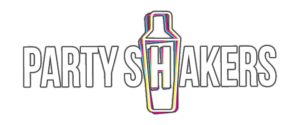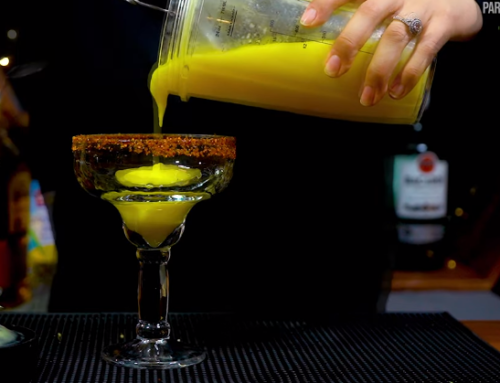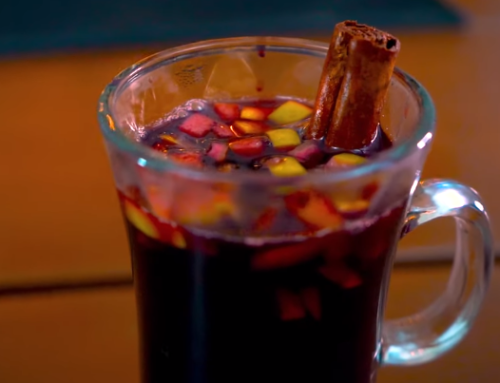
Sometimes there are situations when it seems like the customer is too difficult, but there is a legendary saying that goes “the customer is always right”. When it comes to bartending service rules, it seems like this is a common issue. One that we will discuss in length today.
It is very important to keep in mind that there is no such thing as the customer always being right. What this means is that even if they are wrong, you need to treat them like they are right. This is more of a customer service thing than anything else. It is meant to give you the perspective that you always need to keep your cool.
The history of customer service in bartending service rules
There are endless situations that have proven that customers can be a problem for a business if they are not treated well. You will find that a vindictive customer can really hurt the reputation of a business.
The problem can become more evident when the business that is dealing with the customer is not taking the abuse. This can make the customer even more enraged because they feel entitles to be treated right no matter what. This is the moment when you need to show your emotional control.
A bartender really needs to work hard to ensure that they can handle any kind of situation. With that said, it is also important to consider that some situations can go too far. This is why we have created a few scenarios that prove to be too much of a problem to simply ignore them.
When the guest insults you
If you are dealing with a guest that acts obnoxiously, you can still handle this quite well without too much drama. The issue is that this person can become more aggressive and start calling you insulting names.
In this scenario, it is always a good to let the person know that they are out of line. Warn them that you do not want to be insulted and be polite about it. If the person is smart, they will usually back off after that and even apologize. With that said, you might still find that some people will not stop. When this happens, you should call the security at the bar and ignore this person completely.
The customer is never right when they decide to treat you badly and to disrespect you. This is one of those situations when it is good to reinforce your rights to be treated properly.
When they get physical
There is absolutely no situation in which a customer has the right to get physical with a bartender. This means anything as simple as touching the bartender during an argument. There are some situations when even getting to close to the person can be something that is going to be an issue.
If someone is getting too close to you and being aggressive, you need to let them know that they need to step back. There are certain boundaries that no one should ever try to step over. This is the main reason why bartender service rules should always include specific situations when they can take action.
By taking action, it does not mean insulting or being physically violent. It means letting the person know that they are being rude and that they need to stop their behavior. In this case, the customer is never right, but you still need to be able to handle things professionally.
When they get too drunk
It is important to always consider the level of intoxication of a guest and to decide to stop serving drinks. There are many things to consider in this situation, but it is essential t keep an eye for specific signs.
These are very specific things to consider:
- Slurred Speech: If someone is talking all funny and you can barely understand what they’re saying, chances are they’ve knocked back one too many shots.
- Lack of Coordination: Keep an eye on folks who stumble around like they’re walking on a tightrope. When their moves get wobbly and unsteady, it’s a telltale sign that they’re intoxicated.
- Aggressiveness or Inappropriate Behavior: Some people get all rowdy and start causing trouble when they’ve had a few too many. If someone starts acting aggressive or doing things that cross the line, it’s time to step in and shut it down.
- Bloodshot or Glassy Eyes: Look into their eyes! If they’re all red, bloodshot, or just look glazed over, chances are alcohol’s got them in its grip.
- Excessive Loudness: You know those people who can’t control the volume of their voice? Well, when someone’s intoxicated, that volume control goes out the window. If they start cranking up the volume and disrupting the vibe, it’s time to take action.
Also consider
- Decreased Responsiveness: When someone starts zoning out, looking drowsy, or just plain unresponsive, it’s a sign they’re on the edge of dangerous intoxication. Time to step in and make sure they’re okay.
- Emotional Instability: Alcohol can mess with people’s emotions big time. If someone suddenly becomes overly emotional, sad, or angry, it’s a sign that booze has got them riding an emotional rollercoaster.
- Rapid Consumption: Watch out for those party animals who are pounding drinks like there’s no tomorrow. When someone’s downing them one after another at lightning speed, it’s a recipe for quick and severe intoxication.
- Impaired Judgment: Alcohol has a way of making people do dumb things. If someone’s making irrational decisions or engaging in risky behavior, it’s a red flag to step in and help them make better choices.
- Legal Obligations: Make sure you know the laws and regulations around alcohol service in your area. Some places have strict rules about when you got to cut off a visibly intoxicated person.
Emotional control is the most essential thing in bartending service rules
Being able to control your emotions and to handle all kinds of situations is very important. This is going to create the most relevant changes in the way you approach every aspect of your business. The better you are at controlling your temper, the easier it is to achieve the best results when you are handling difficult customers.
Just keep in mind that emotional control is not an easy thing to master and it takes time. You should see this as a never ending learning experience that makes a serious difference in every aspect of your life. It is also a great way to ensure a long lasting career.
The following exercises can help you improve your emotional control:
- Mindfulness Meditation: Take a few minutes each day to practice mindfulness meditation. Just sit comfortably, focus on your breath, and observe your emotions without judgment. It’s all about being aware of how you feel and learning to manage those emotions.
- Deep Breathing: When you’re overwhelmed by strong emotions, take a moment to breathe deeply. Inhale through your nose, hold it for a few seconds, and then exhale slowly through your mouth. It’s surprising how much this simple technique can calm your mind and body.
- Thought Stopping: Ever catch yourself spiraling into negative thoughts? Well, tell yourself “stop” when you notice those thoughts creeping in. By interrupting them, you can prevent them from taking over. Replace them with positive or neutral thoughts to shift your perspective.
- Journaling: Grab a journal and start writing about your emotions. When you’re feeling intense emotions, jot down what happened and reflect on why you reacted that way. It’s a fantastic way to understand yourself better and identify patterns in your emotions.
- Emotional Labeling: Whenever you feel something strongly, try putting a name to that emotion. Say it out loud or write it down. It could be “frustration,” “anger,” “happiness,” or whatever fits. This simple act of labeling can help you take control of your emotions.
- Progressive Muscle Relaxation: Tense up and then release each muscle group in your body, one by one. Start from your toes and work your way up to your head. It’s like giving yourself a mini massage! This exercise helps release physical tension that can be tied to emotional stress.
You can alsop try these out
- Visualization: Close your eyes and imagine yourself in a peaceful and serene place. Picture the details—the sights, sounds, smells—make it vivid. This mental getaway can be your go-to when you need to calm your emotions and find some inner peace.
- Empathy Practice: Boost your emotional control by practicing empathy. Try putting yourself in someone else’s shoes and understanding how they might feel. It helps you develop compassion and keeps your emotions in check during challenging interpersonal situations.
- Gratitude Practice: Take a moment every day to think of three things you’re grateful for. It can be as simple as a sunny day or a good cup of coffee. Focusing on the positive aspects of your life helps balance out your emotions and builds resilience.
- Conflict Role-Play: Get some practice dealing with conflicts by role-playing different scenarios. Pretend to be in a difficult situation and work on staying calm while expressing yourself assertively. It’s like a rehearsal for real-life encounters, and it can do wonders for your emotional control.
How much to tip a bartender in LA based on bartending service rules?
In this city of stars, the customary range for tipping those cocktail wizards hovers between 15% and 20% of the total bill. But hold on tight, because we’re just getting started!
Tipping practices in LA are as diverse as the city itself. It’s a wild ride where each establishment and the level of service provided can throw you for a loop. One minute, you might find yourself tipping smack dab in the middle of the range, thinking you’ve cracked the code. But wait, there’s more.
Imagine this scenario: you’re sipping your perfectly crafted drink, and the bartender becomes a mixological maestro, wowing you with their artistry. They whip up concoctions that transcend ordinary libations and transport you to a world of liquid delight.
Remember, dear adventurer, tipping is a dance of discretion. It’s an opportunity to showcase your satisfaction with the service provided. If you find yourself less than impressed, fear not! You have the power to adjust the amount accordingly, navigating through the labyrinth of your own tipping preferences.
How many bartenders do you need for 50 guests?
The number of bartenders you need when you are dealing with 50 guests is usually one. A single bartender can easily handle 50 guests given that it is unlike that they will all be asking for drinks at once. It is also important to determine if all 50 guests will be drinking or if only a few of them will drink.
The most likely scenario is that a good bartender will be all you need. This is if you have 50 guests or less at a party or event. In some cases, a good bartender can handle even more than that, but the most common expectation is to see at least 2 bartenders if you have over 100 guests.
Are freelance bartenders good for events?
Yes, they tend to be very good for events and they are usually able to handle them quite easily. The freelance bartender is usually going to be someone who is quite good at this process. You need to consider several factors that will be relevant, but the pricing and the skills are usually favorable.
One of the things that people seem to forget is that the bartender service rules that matter the most is to be efficient. A freelancer bartender is usually very efficient and able to provide the right kind of results.
Party Shakers offers some of the best freelance bartending you can find!
We are a team of bartenders that value the importance of excellence in customer service and we know that customers deserve to be treated with respect. The team always ensures the best service and we handle things properly even when the customer is difficult.
We know that there are many aspects of bartending that are very important to keep in mind at all times. We also offer photo booth services, music DJ services and the best mobile bar setups you can find.
Questions and answers
How much to tip a bartender in LA?
The amount of money that you decide to tip to a bartender in LA depends on several factors. The main thing to always remember is to keep it above $10. With that said, it is most common to see tips between $20 and $50.
How many bartenders do you need for 50 guests?
There are some events that could need more than one bartender for 50+ guests, but usually anything below 50 guests can be handled by a single bartender.
Are freelance bartenders good for events?
There are some freelancer bartenders that can be very good for events of all kinds. The freelancer bartender usually learns a lot of great things with many experiences in all kinds of services.
Final thoughts on bartending service rules
If you are looking to learn more about how proper customer service works, you will find that Party Shakers offers the best services in the business. While is it is common to believe that the customer is always right, this is not always the case. Being able to learn to determine when that is the case is very important.




